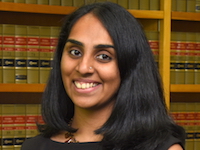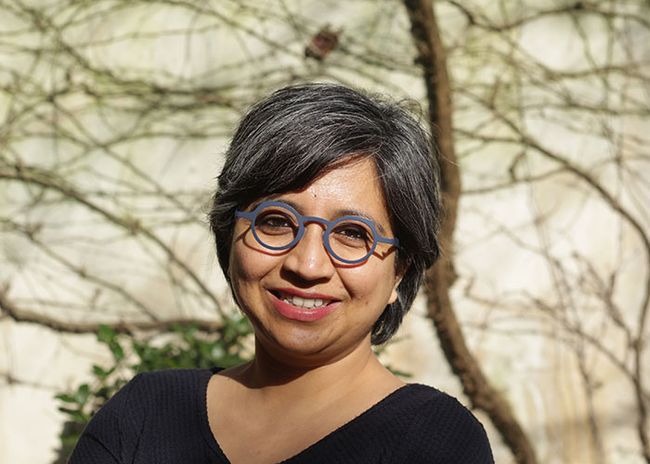Decolonization @60 Symposium (Dec. 14, 2020)
Decolonization@60, the BU Center for the Study of Asia, and the Frederick S. Pardee School of Global Studies invite you to take part in the Decolonization@60 Symposium
Monday Dec. 14, 2020 from 9:00 to 12:30 pm EST via Zoom
Please RSVP to receive the Zoom link for each event
Keynote: https://bostonu.zoom.us/meeting/register/tJMud-ytqjMoH9SP7zThNgYLjVM2mTrh4slP
Roundtable: https://bostonu.zoom.us/meeting/register/tJArd-CupzwpGtb-ktL-9RL6364Fj641i8pJ
If you have any questions, please contact decolo@bu.edu
About the Speakers:
Keynote Speaker: Willem van Schendel (University of Amsterdam & International Institute of Social History, Amsterdam)  works in the fields of history, anthropology and sociology of Asia. Recent books include A History of Bangladesh (new edition, July 2020); The Camera as Witness: A Social History of Mizoram, Northeast India (with Joy L.K. Pachuau, 2015); and Embedding Agricultural Commodities: Using Historical Evidence, 1840s–1940s (ed., 2017). His publications can be found at https://uva.academia.edu/WillemVanSchendel.
works in the fields of history, anthropology and sociology of Asia. Recent books include A History of Bangladesh (new edition, July 2020); The Camera as Witness: A Social History of Mizoram, Northeast India (with Joy L.K. Pachuau, 2015); and Embedding Agricultural Commodities: Using Historical Evidence, 1840s–1940s (ed., 2017). His publications can be found at https://uva.academia.edu/WillemVanSchendel.
Roundtable Participants:

Sana Aiyar is a historian of modern South Asia at MIT, where she is an associate professor of history. Her broad research and teaching interests lie in the regional and transnational history of South Asia and South Asian diasporas, with a particular focus on colonial and postcolonial politics and society in the Indian Ocean. Her first book, Indians in Kenya: The Politics of Diaspora (Harvard University Press, 2015), explores the interracial and extraterritorial diasporic political consciousness of South Asians in Kenya from c. 1895 to 1968 who mediated constructions of racial and national identity across the Indian Ocean. Professor Aiyar is currently working on two projects. One is a study of the everyday encounters of African soldiers and South Asian civilians during the Second World War when over a hundred thousand military recruits from East and West Africa were stationed in India and Burma. The second, “India’s First Partition,” is an examination of migration, religious and ethnic politics, nationalism, and anticolonial activism across India and Burma in the 1930s.
Kalyani Ramnath is a historian of modern South Asia, with research and teaching interests in legal  history, histories of migration and displacement, transnational history and questions of archival method. She is a Prize Fellow in Economics, History, and Politics at the Center for History and Economics and Lecturer at Harvard University. She received her Ph.D. in history from Princeton University in 2018, holds an LLM from Yale, and a JD-equivalent from the National Law School of India.
history, histories of migration and displacement, transnational history and questions of archival method. She is a Prize Fellow in Economics, History, and Politics at the Center for History and Economics and Lecturer at Harvard University. She received her Ph.D. in history from Princeton University in 2018, holds an LLM from Yale, and a JD-equivalent from the National Law School of India.
Debjani Bhattacharyya is an associate professor of history at Drexel University. Her work explores the  intersection of legal and environmental history. Professor Bhattacharyya’s research is driven by the desire to understand how legal and economic structures order our conceptualization of environmental transformations and shape how we respond to climate crisis. Her book, Empire and Ecology in the Bengal Delta: The Making of Calcutta (Cambridge University Press, 2018) won the 2019 honorable mention for the best book in Urban History. She holds a PhD from Emory University.
intersection of legal and environmental history. Professor Bhattacharyya’s research is driven by the desire to understand how legal and economic structures order our conceptualization of environmental transformations and shape how we respond to climate crisis. Her book, Empire and Ecology in the Bengal Delta: The Making of Calcutta (Cambridge University Press, 2018) won the 2019 honorable mention for the best book in Urban History. She holds a PhD from Emory University.
Sanjib Baruah is is professor of political studies at Bard College, New York and honorary research  professor at Centre for Policy Research (CPR), New Delhi. He is the author of a number of books and many articles. His books include Durable Disorder: Understanding the Politics of Northeast India and India against Itself: Assam and the Politics of Nationality. He recently published in In the Name of the Nation: India and its Northeast (Stanford University Press, 2020)
professor at Centre for Policy Research (CPR), New Delhi. He is the author of a number of books and many articles. His books include Durable Disorder: Understanding the Politics of Northeast India and India against Itself: Assam and the Politics of Nationality. He recently published in In the Name of the Nation: India and its Northeast (Stanford University Press, 2020)
Prasannan Parthasarathi is Professor and Chair at the Department of History at Boston College. He  teaches courses on modern South Asia, global history, and environmental history. He is now engaged in a study of environmental change, agriculture, and labor in nineteenth-century South India. His research has been supported by fellowships from the Dibner Institute and the American Council for Learned Societies. He is a senior editor of International Labor and Working Class History and serves on the editorial boards of a number of journals including Textile History, the Medieval History Journal, and the American Historical Review.
teaches courses on modern South Asia, global history, and environmental history. He is now engaged in a study of environmental change, agriculture, and labor in nineteenth-century South India. His research has been supported by fellowships from the Dibner Institute and the American Council for Learned Societies. He is a senior editor of International Labor and Working Class History and serves on the editorial boards of a number of journals including Textile History, the Medieval History Journal, and the American Historical Review.
Decolonization@60 is part of the Global Decolonization Initiative (GloDec) at the BU Pardee School which brings together undergraduate and graduate students, postdocs and faculty to develop an intellectual community passionate about understanding the ongoing processes of decolonization through studying borders, borderlands, partitions, identities, race, citizenship and political violence.
GloDec comprises four kinds of programs that predominantly relate to student and faculty research.
STUDENT RESEARCH PROJECTS
GloDec’s research projects include its flagship Partitions Project to develop a database and a series of case studies on territorial partitions, and the Nuclear Sites Project to develop in-depth case studies on nuclear weapons, energy, and mining sites located in the world’s borderlands. See the projects’ pages for more information.
STUDENT-LED PROGRAMS
-
“Students for Decolonization” [SDECOL]
Approved by BU’s Student Activities Office (SAO), SDECOL is an independent undergraduate student group that aims to facilitate on-campus communication and research on decolonization and related subjects.
-
Decolonization Film Series
GloDec’s partnership project with SDECOL, with the involvement of M.A. students the film series showcases three films/documentaries per semester on decolonization followed by discussion led by a BU faculty member.
DECOLONIZATION WORK-IN-PROGRESS SEMINAR SERIES
The seminar is open to Ph.D. students, postdocs, and junior faculty at Boston University and beyond, who are conducting innovative research on themes associated with decolonization. See seminar page for more information.
DECOLONIZATION@60 EVENTS, 2020-21 & 2021-22
The Global Decolonization Initiative at the BU Pardee School grew out of a one-day workshop that was to be held at Boston University on March 18, 2020, but could not take place owing to the COVID-19 closures. Hosted on the 60th anniversary of the United Nations General Assembly Resolution 1514, “Declaration on the Granting of Independence to Colonial Countries and Peoples,” the aim of that workshop was to lead a provocative discussion on decolonization as multiple global processes that are not frozen in time of the 1940s, 1950s and the 1960s, but rather one that forms an intellectual framework to understand borderlands and political violence today. In AY 2020-21 and 2021-22, the content of the workshop will take place on Zoom hosted by the Global Decolonization Initiative [one event per semester].
For additional information about the Global Decolonization Initiative at Boston University, please see https://www.decolonizationworkshop.info/
